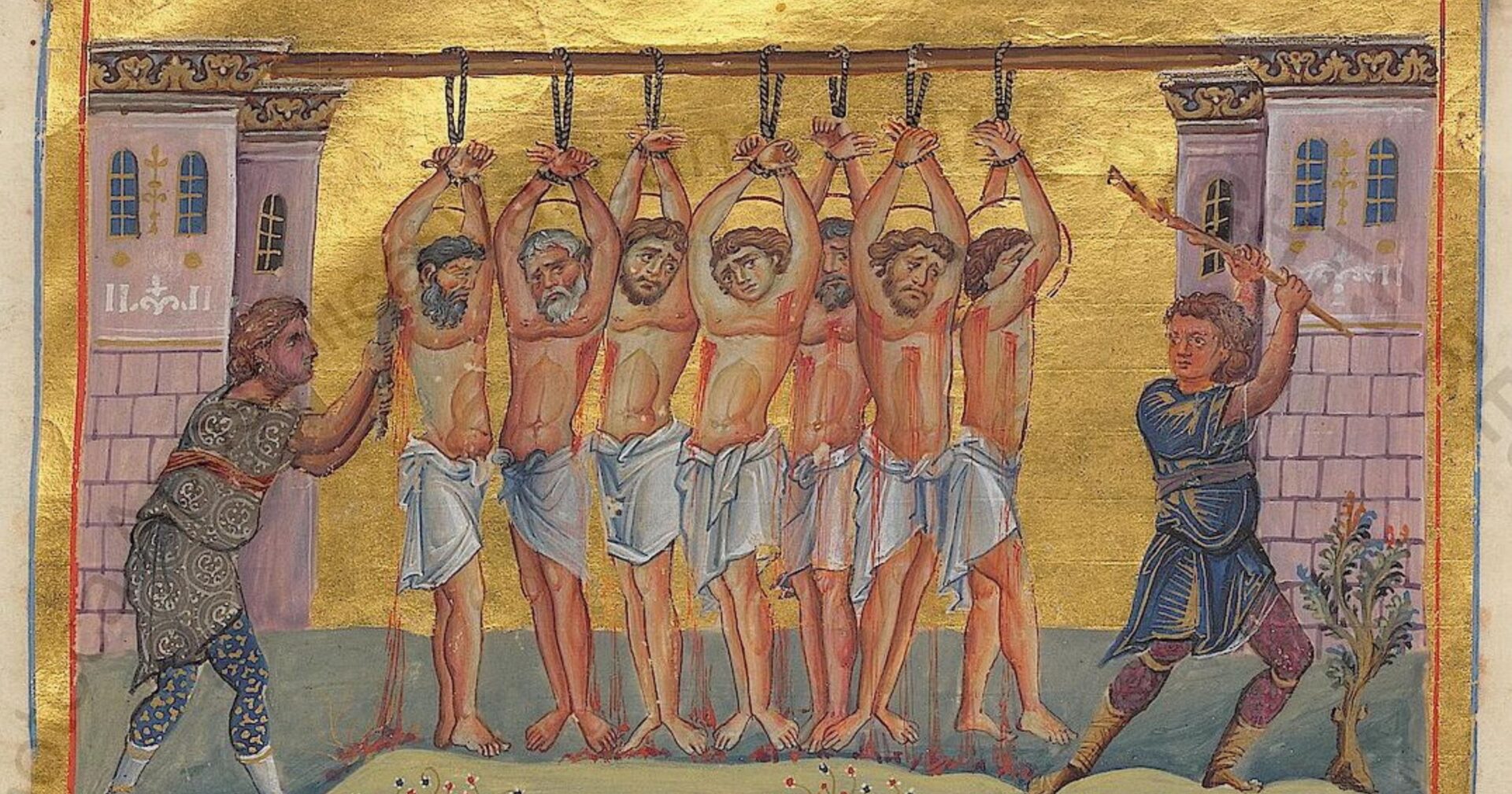In the era of early Christianity, Saint Varus emerges from the sands of Egypt, embodying the spirit of faith that is not easily shaken.
Born a soldier, martyred around 304 A.D., he played a unique role that echoes throughout the ages – the divine protector of the unbaptized souls who passed away outside the Church’s embrace.
Varus’s journey from a soldier to a beacon of faith wasn’t linear. His assignment in Upper Egypt involved the melancholic task of guarding seven doomed monks. As each monk faced their end, Varus found his fading faith ignited anew. Stirred by their unwavering devotion in the face of death, he gravitated towards their belief, becoming one of them.
This courageous act came with a heavy price – he was tortured and his life ended abruptly on a tree.
However, Varus’s story didn’t end with his death.
He left an indelible mark on Saint Cleopatra, a woman of deep faith from Edra, near Mount Tabor in Lower Galilee. Cleopatra had observed Varus’s martyrdom, and in reverence to his sacrifice, took his remains to her home in Daraa, Syria for a dignified burial.
Cleopatra’s bond with Saint Varus grew stronger after the untimely death of her son, John. In her intense grief, she found solace in Varus’s relics, praying for her son’s soul. A dream that presented Varus and John together in radiant attire, crowned and peaceful, was taken by Cleopatra as a divine reassurance of her son’s acceptance in the Heavenly Kingdom. This experience inspired her to dedicate her life in servitude to God.
It is Cleopatra’s story that offers us insight into Varus’s unique role.
He, a martyr, became the beacon of hope for grieving mothers like Cleopatra, believing that he guided unbaptized souls like John to the heavens.
Over time, Saint Varus came to be recognized as the Patron Saint of all unbaptized individuals who passed away outside the Church, a comforting figure of our faith.

















